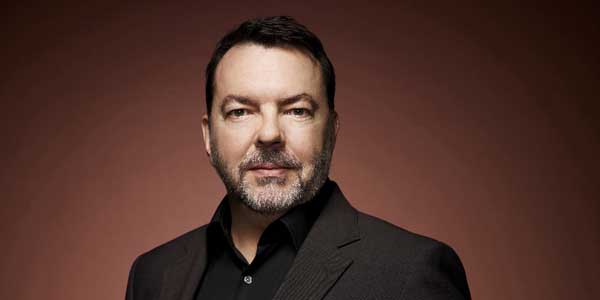Originally posted on www.biggaypictureshow.com
This week I’m heading across the pond back to America to give thanks to one of the gay heavyweights working behind the scenes in film and television, Oscar, Emmy and Golden Globe award winning film, theatre and television producer, writer and director, Alan Ball.
After finishing college in 1980, Ball began working as a playwright at the General Nonsense Theatre Company in Sarasota Florida. Although we may be skipping a few years ahead, by the 1990s he was working in television and contributed to a number of shows such as Oh Grow Up, Grace Under Fire and Cybill, which starred Cybill Shepherd.
In 1999 Ball’s first film as a screenwriter, American Beauty, exploded at the box office grossing over $350 million worldwide and won five Oscars at the 72nd Academy Awards, including Best Picture and a Best Screeplay gong for Ball. Although the film was a huge success, most of a hefty gay subplot was removed from the film until the very end, which is slightly disheartening, but luckily for the LGBT community it wasn’t entirely ripped from the film.
Venturing back into television, Ball created the hugely successful HBO drama series Six Feet Under, which was a rating’s smash and ran for five series. The show included a major gay character that broke the mould of the traditional stereotype, in the shape of David Fisher, played by Dexter’s Michael C. Hall. After the series ended his next huge hit came in the shape of vampire series True Blood.
Throughout the show a number of LGBT issues have been at the forefront, with the openly gay Layfayette, a lesbian relationship involving Tara, and at the end of the latest series a blossoming vampire lesbian relationship between Pam and Tara. We’ve even seen male vampires engaging in sex together, which despite them being dead all helps towards normalising LGBT characters on TV.
The whole show has been read as an allegory for LGBT rights, with vampires ‘coming out of the closet’ and fighting for equal rights. Although Ball has dispelled this comparison as laziness, the author of the books the show is based on has said this was the case when she wrote them. Either way it’s great to be able to see the fight for gay rights being represented in a way that isn’t overly forceful on an audience.
Along with all this Ball been named one of the most impressive gay men and women in Out magazine’s annual 100 list, and has been lauded as a strong voice for the community. As he left his position as show runner at the end of series five of True Blood, it will be interesting to see what Ball does next and whether he will continue to channel gay characters on his shows and challenge stereotypes that have existed for far too long.


